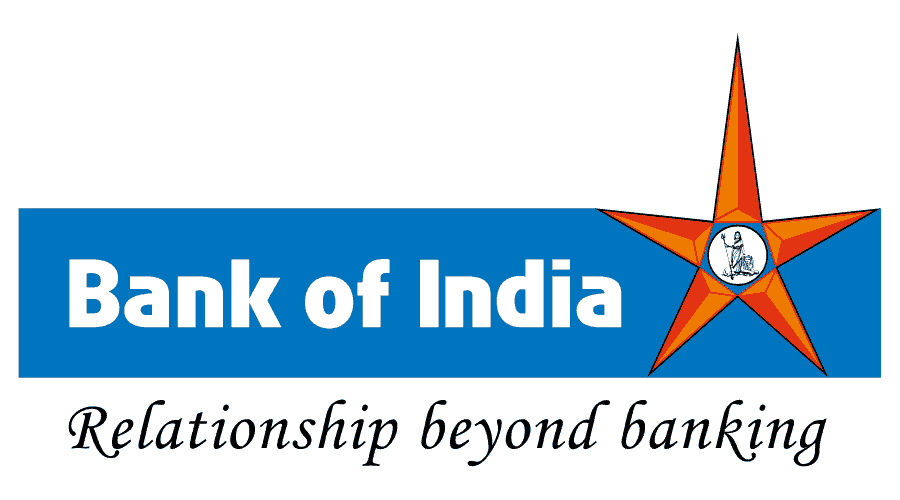Best Rates Quick View
Scan the top picks across all term lengths
Updated: 15 Feb 2026, 09:00 AM
Short-Term Rates (1-12 Months)
| Bank Details |
1
month ↕ |
3
months ↕ |
4
months ↕ |
5
months ↕ |
6
months ↕ |
9
months ↕ |
12
mths ↕ |
|---|---|---|---|---|---|---|---|
|
|
1.90%
|
3.00%
|
3.10%
|
3.30%
|
3.45%
|
3.40%
|
3.55%
|
|
|
1.80%
|
2.85%
|
3.00%
|
3.10%
|
3.45%
|
3.55%
|
3.50%
|
|
|
1.80%
|
2.90%
|
3.00%
|
3.10%
|
3.45%
|
3.50%
|
3.55%
|
|
|
2.00%
|
3.15%
|
3.25%
|
3.45%
|
3.55%
|
3.50%
|
3.50%
|
|
|
2.10%
|
3.25%
|
3.35%
|
3.55%
|
3.65%
|
3.60%
|
3.60%
|
|
Rating:
Min Deposit:
$0
|
2.00%
|
3.15%
|
3.25%
|
3.45%
|
3.55%
|
3.50%
|
3.50%
|
|
|
1.90%
|
3.20%
|
3.30%
|
3.40%
|
3.60%
|
3.50%
|
3.70%
|
|
|
2.00%
|
3.00%
|
3.25%
|
3.50%
|
⭐
3.70%
Top Rate
|
3.70%
|
⭐
3.70%
Top Rate
|
|
|
2.20%
|
2.50%
|
2.70%
|
2.95%
|
3.20%
|
3.20%
|
3.20%
|
|
|
1.90%
|
2.90%
|
- | - |
3.40%
|
3.45%
|
3.45%
|
|
|
1.80%
|
2.90%
|
3.00%
|
3.10%
|
3.40%
|
3.40%
|
3.40%
|
|
|
1.95%
|
3.05%
|
3.15%
|
3.25%
|
3.50%
|
3.40%
|
🏆
3.75%
Best Rate
|
|
|
- |
3.05%
|
3.10%
|
3.25%
|
3.55%
|
3.40%
|
3.55%
|
|
|
1.85%
|
3.05%
|
- | - |
3.55%
|
3.45%
|
3.60%
|
|
Rating:
A
Min Deposit:
$1,000
|
1.95%
|
3.05%
|
- | - |
3.50%
|
3.45%
|
3.60%
|
|
|
1.90%
|
3.00%
|
3.10%
|
3.30%
|
3.45%
|
3.55%
|
3.55%
|
|
|
1.80%
|
3.00%
|
3.00%
|
3.20%
|
3.45%
|
3.50%
|
3.55%
|
|
|
1.80%
|
2.85%
|
3.00%
|
3.10%
|
3.45%
|
3.50%
|
3.55%
|
Last updated: February 15, 2026 at 09:00 AM
Understanding Short-Term Deposit Rates in New Zealand
Short-term term deposits (12 months or less) offer a conservative investment option for New Zealanders who need relatively quick access to their funds while earning guaranteed returns. Compare current short-term deposit rates from all major New Zealand banks, updated daily to help you find the best rates for your savings strategy. This comprehensive guide covers everything you need to know about short-term deposit rates, strategies, and considerations.
What are Short-Term Term Deposits?
Short-term term deposits are fixed-term savings products where you invest money for periods of 3, 6, 9, or 12 months. Unlike longer-term deposits, these products provide quicker access to your funds while still offering better returns than most savings accounts.
Key characteristics of short-term deposits: - Term lengths: 3 months, 6 months, 9 months, and 12 months - Fixed rates: Interest rates are locked in for the entire term - Capital protection: Your principal is secure - Guaranteed returns: You know exactly what you’ll earn
Benefits of Short-Term Term Deposits
Liquidity and Flexibility: Short-term deposits provide relatively quick access to your funds, making them ideal for emergency funds or money you may need within the year.
Rate Protection: If interest rates fall during your term, your rate remains protected. This can be particularly valuable during uncertain economic periods.
Lower Opportunity Cost: With shorter commitment periods, you have more frequent opportunities to reassess and reinvest at potentially better rates.
Emergency Fund Suitability: Perfect for parking emergency funds where you need guaranteed access within 12 months while earning better returns than standard savings accounts.
Short-Term vs Long-Term Strategy Considerations
When Short-Term Makes Sense: - Building an emergency fund (3-6 months of expenses) - Saving for known expenses within the next year - Uncertain about future interest rate movements - Need regular access to reassess investment options - Conservative approach to rising rate environments
Interest Rate Environment Impact: In rising rate environments, shorter terms allow you to reinvest at higher rates more frequently. In falling rate environments, you may miss out on locking in higher rates for longer periods.
Tax Implications for Short-Term Deposits
All interest earned on short-term term deposits is subject to Resident Withholding Tax (RWT) in New Zealand:
- 10.5%: Annual income up to $14,000
- 17.5%: Annual income $14,001 to $48,000
- 30%: Annual income $48,001 to $70,000
- 33%: Annual income over $70,000
Important: Ensure you provide the correct RWT rate to your bank to avoid tax complications at year-end.
Short-Term Deposit Strategies
Laddering Strategy: Divide your funds across multiple short-term deposits with staggered maturity dates. For example, split $12,000 into four $3,000 deposits maturing every 3 months. This provides quarterly access to funds while maintaining earning potential. Use our term deposit calculator to model different laddering scenarios and potential returns.
Emergency Fund Optimization: Consider a 6-month term deposit for your emergency fund. This strikes a balance between earning potential and accessibility for genuine emergencies.
Rate Monitoring: With shorter terms, you have regular opportunities to reassess market rates. Set reminders before maturity to compare current market rates and reassess your investment options.
Seasonal Considerations: Some investors use short-term deposits strategically around tax time or known seasonal expenses.
Minimum Deposit Requirements and Rates
Short-term deposits typically have varying minimum deposit requirements depending on the bank and specific product. Most major banks offer short-term options starting from $1,000 to $5,000.
Rate Considerations: - 3-month deposits often offer lower rates due to very short commitment - 6-month terms typically provide better rates while maintaining good liquidity - 9-month and 12-month deposits usually offer the highest short-term rates - Some banks offer relationship-based rate improvements for existing customers
Breaking Short-Term Deposits
While short-term deposits mature relatively quickly, you may still need early access in genuine emergencies:
Early Withdrawal Penalties: Banks typically reduce interest rates for early withdrawals, sometimes to savings account rates or lower.
Notice Requirements: Most banks require advance notice (often 31 days) for early withdrawals from term deposits.
Emergency Considerations: Given the relatively short terms, it’s often better to wait for maturity unless facing genuine financial hardship.
Comparing Short-Term Options
3-Month Terms: - Pros: Maximum liquidity, frequent reinvestment opportunities - Cons: Typically lowest rates, more administrative overhead - Best for: Very conservative investors, uncertain cash flow needs
6-Month Terms: - Pros: Good balance of rate and accessibility, popular term - Cons: Moderate commitment, may miss out on rate increases - Best for: Emergency funds, balanced short-term strategy
9-Month Terms: - Pros: Higher rates than shorter terms, still relatively accessible - Cons: Longer commitment than 6 months, less common offering - Best for: Known medium-term savings goals
12-Month Terms: - Pros: Highest short-term rates, still accessible within a year - Cons: Longest short-term commitment, full year lock-up - Best for: Annual savings goals, conservative long-term approach
Interest Payment Options for Short-Term Deposits
At Maturity: Most common for short-term deposits. Interest is paid when the term expires, typically using simple interest calculations.
Quarterly Payments: Some banks offer quarterly interest payments on 12-month deposits, providing income during the term.
Monthly Payments: Less common for short-term deposits but may be available on 12-month terms from some banks.
Economic Environment Considerations
Rising Rate Environment: Short-term deposits shine when rates are increasing, as you can reinvest more frequently at higher rates.
Falling Rate Environment: You may benefit from moving to longer terms before rates fall further, though short-term deposits provide flexibility to adapt.
Economic Uncertainty: Short-term deposits provide a safe haven during uncertain times, with guaranteed returns and relatively quick access to funds.
Short-Term Deposit Alternatives
High-Interest Savings Accounts: Offer more flexibility but typically lower rates and variable returns.
Notice Saver Accounts: Require advance notice for withdrawals but may offer competitive rates with more flexibility than term deposits.
Cash Management Trusts: May offer competitive returns but come with different risk profiles and fee structures.
Frequently Asked Questions About Short-Term Deposits
Q: Are 3-month deposits worth it over savings accounts? A: This depends on the rate differential and your need for liquidity. If the rate difference is significant and you can commit for 3 months, term deposits may be worthwhile.
Q: Should I choose 6 months or 12 months for my emergency fund? A: Consider 6 months for better liquidity, or split between both terms. Avoid putting your entire emergency fund in 12-month deposits if you might need access sooner. For longer investment horizons, explore our long-term deposit strategies.
Q: Can I add money to my short-term deposit during the term? A: No, you cannot add funds to an existing term deposit. You would need to open a separate deposit for additional funds.
Q: What happens if I need money before my short-term deposit matures? A: You can typically break the deposit but will face interest rate penalties. Given the short terms, it’s often better to wait for natural maturity.
Q: Do short-term deposits offer better rates than long-term ones? A: Not usually. Longer terms typically offer higher rates as compensation for reduced liquidity. However, this can vary based on market conditions and bank strategies.
Q: How often should I review my short-term deposit strategy? A: Review at each maturity date (every 3-12 months) to compare current market rates and reassess your liquidity needs.
Q: Are short-term deposits good for building an emergency fund? A: Yes, they’re excellent for emergency funds as they provide guaranteed returns while maintaining relatively quick access to funds within 3-12 months.
Q: Should I spread my money across different banks for short-term deposits? A: This can be beneficial for rate comparison and relationship diversification, though it may increase administrative complexity.
Making Short-Term Deposit Decisions
Short-term term deposits serve as an excellent bridge between savings accounts and longer-term investments. They’re particularly valuable for:
- Emergency fund management
- Short-term savings goals
- Conservative investment approaches
- Uncertain economic environments
- Regular income through deposit laddering
Before investing in short-term deposits, consider: - Your liquidity needs over the next 12 months - Current and expected interest rate environment - Your overall investment and savings strategy - Alternative options for short-term funds - The administrative effort of regular reinvestment
Short-term deposits provide security, guaranteed returns, and reasonable accessibility, making them a cornerstone of conservative financial planning in New Zealand.











